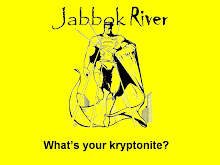
Many Christians have debated with existentialists about some of their beliefs. Some sects of existentialism hold beliefs that there is no one way or right way of living and thus Christianity doesn’t have a leg to stand or that it serves the same purpose as other religions and there is nothing all that special about Christianity. These existentialists believe that human’s main motivation is to alleviate the fear of death and the role of religion is just one way to assuage this fear. However, just like there are many denominations within Christianity, there are many differences of opinions within the existential community. Victor Frankl, an existential theorist and holocaust survivor, believed that men and women’s main motivation is not fear of death but fear of meaninglessness.
Yes, we need our lives to be meaningful but most of us are terrified of taking responsibility for our lives. We blame God for our current circumstances of failure, misery, and despair. We blame God for our lack of opportunities, for missed opportunities, or failed opportunities. We get angry because we want all the freedoms and perks that life has to offer and none of the responsibilities or dues.
But as long as we blame God or others for our current state of being, we can never change our current state. If we blame, we feel helpless not because we actually are helpless but because we choose to be helpless. God always gives us a choice. We don’t always like the choices we have, but we always have a choice. We don’t choose to live in a culture of social injustices but we do have a choice to accept it by our silence or to speak out against it. We don’t have choice over accidents, natural disasters, or death, but we do have choice how will wrestle with each issue. We don’t have a choice as to an insult from a friend, but we can choose our response. We don’t have choice over things that anger us, but we do have a choice in how we will react.
There are things that we cannot control and there are things that we can. M.Scott Peck writes perfectly about our responsibility in life. He writes that many of us take responsibility for things we shouldn’t: we are called neurotics. He also writes about people who don’t take responsibility for things we should: we are described as having a character disorder. Chances are, if you are anything like me, that in some areas of your life you take too much responsibility and in other areas in your life not enough. If we have no friends, do we question our own friendliness? If we feel like no one knows us, do we question our transparency? If we feel unlovable, do we question are own ability to love? If we feel judged, do we question the fact that we compare ourselves to every man we meet? Most of us don’t questions ourselves rather we blame the church, God, our spouses, or society for something that we can actually change.
Yes, we need our lives to be meaningful but most of us are terrified of taking responsibility for our lives. We blame God for our current circumstances of failure, misery, and despair. We blame God for our lack of opportunities, for missed opportunities, or failed opportunities. We get angry because we want all the freedoms and perks that life has to offer and none of the responsibilities or dues.
But as long as we blame God or others for our current state of being, we can never change our current state. If we blame, we feel helpless not because we actually are helpless but because we choose to be helpless. God always gives us a choice. We don’t always like the choices we have, but we always have a choice. We don’t choose to live in a culture of social injustices but we do have a choice to accept it by our silence or to speak out against it. We don’t have choice over accidents, natural disasters, or death, but we do have choice how will wrestle with each issue. We don’t have a choice as to an insult from a friend, but we can choose our response. We don’t have choice over things that anger us, but we do have a choice in how we will react.
There are things that we cannot control and there are things that we can. M.Scott Peck writes perfectly about our responsibility in life. He writes that many of us take responsibility for things we shouldn’t: we are called neurotics. He also writes about people who don’t take responsibility for things we should: we are described as having a character disorder. Chances are, if you are anything like me, that in some areas of your life you take too much responsibility and in other areas in your life not enough. If we have no friends, do we question our own friendliness? If we feel like no one knows us, do we question our transparency? If we feel unlovable, do we question are own ability to love? If we feel judged, do we question the fact that we compare ourselves to every man we meet? Most of us don’t questions ourselves rather we blame the church, God, our spouses, or society for something that we can actually change.





